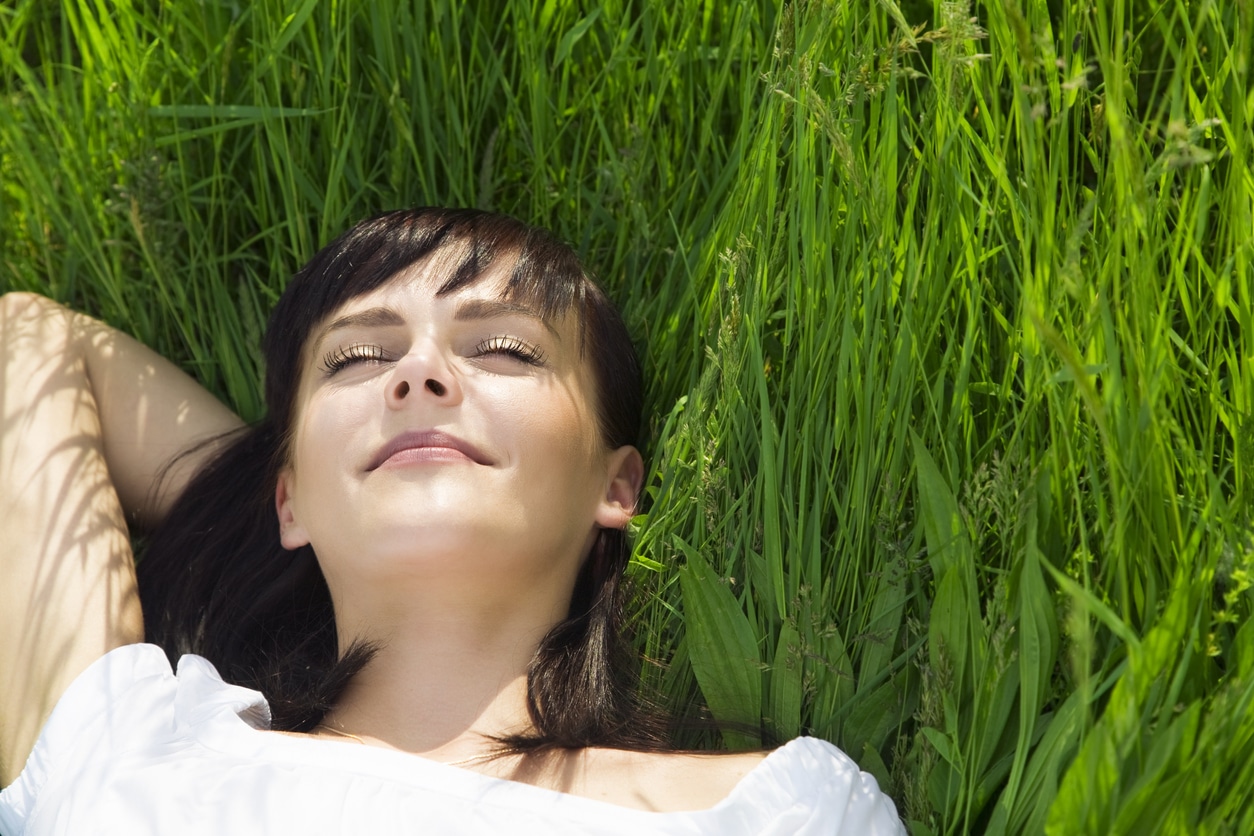There’s something about fresh air that just makes you tired, isn’t there? You’re out enjoying a nice walk or run, and all of a sudden you feel like you can’t keep your eyes open. Why does fresh air make you so sleepy? Turns out, there’s a scientific explanation for it! Keep reading to learn more.
What is the science behind fresh air making you tired?
1 Fresh air lowers your body temperature
Fresh air can lower your body temperature, particularly if you go outside into cooler weather or you open a window and let cooler air into your home.
Additionally, fresh air can help wick away any perspiration, helping your body to cool itself down.
The reason this cooling effect makes you feel tired is that your body naturally reduces its temperature as it is preparing itself for sleep. If fresh air also reduces your body temperature then it mimics this natural cooling cycle, which then lets your body know that it is time for sleep and makes you feel more tired.

2 Fresh air relaxes your muscles
When you breathe in fresh air, your body gets more oxygen. This extra oxygen helps to relax your muscles and can even help reduce any pain or aches that you may be feeling.
The relaxation of your muscles, combined with the cooling of your body temperature, can make you feel very sleepy and want to take a nap.
Getting fresh air outside also helps you to relax your muscles by getting exercise and relieving stress by being outside in the natural light and around nature.
Read also: Why does relaxing make you tired?
3 Fresh air reduces stress
In addition to the physical benefits of fresh air, there are also mental benefits. One of these is that fresh air can help to reduce stress.
Being outside in nature and getting some exercise has been shown to help reduce stress levels. And when your stress levels are lowered, it can help you feel more relaxed and less anxious, which can also make you feel more tired.
This is also one of the reasons why ocean air makes you tired.
4 Fresh air increases oxygen to the brain
Another mental benefit of breathing fresh air is that it can help increase oxygen to the brain. This extra oxygen can help improve your mood and focus, and it can also make you feel more alert.
Your brain also regulates your sleep cycle, and that means that when your brain is working more effectively your circadian rhythm will also be working better – leading to better sleep. You will also find that you have more energy as well as improved sleep.
Read also: Why does being on a boat make you tired?
5 Sunlight helps your melatonin levels
Another reason breathing in fresh air can make you tired is (assuming you are going outside in the daylight to get your fresh air) it increases your melatonin levels, especially on a sunny day!. Melatonin is a hormone that helps regulate your sleep cycle, and one of the things that trigger its release is darkness. However, if we don’t get enough natural light, our bodies stop responding as well to darkness.
When you spend time outdoors in the sunlight, your body gets better at regulating your melatonin production, helping you to get better sleep.
Read also: Why does being in the sun make you tired?
Why does being outside make you tired?
Reconnecting with nature has been shown to reduce stress levels
In today’s busy world, it’s easy to get caught up in our never-ending to-do lists and feel overwhelmed by stress. But research has shown that spending time in nature can help reduce stress levels and improve our sense of efficiency. One study even found that office workers who had plants in their cubicles felt less stressed and were more productive than those who didn’t!
Once our stress levels are reduced, our bodies produce less stress hormone (cortisol) and more happy hormones such as dopamine and serotonin. This can actually help us to feel tired.
Read also: Why do I feel so tired after painting?
Spending time in nature can also be good for improving sleep
If you’re having trouble sleeping, spending time in nature can be a great way to get some much-needed rest. Studies have shown that exposure to natural light during the day can help improve sleep quality at night. And being in nature has also been shown to lower levels of stress hormones, which can interfere with sleep. So next time you’re feeling tired, try taking a walk outside – it just might be the ticket to getting a good night’s sleep!
Break from work
Not only that, but taking a break from work can help to reduce stress and improve productivity overall. If you’re feeling burnt out, maybe all you need is some fresh air! So next time you’re feeling exhausted, try taking a walk outside. Chances are you’ll feel more refreshed and relaxed when you get back to your desk.
Is it better to sleep with the window open or closed?
There are lots of benefits to sleeping with fresh air circulating – so as long as you live in an area with low air polution you should seriously consider sleeping with the window open!
Benefits of sleeping with fresh air:
Lower risk of developing illnesses
There is some evidence to suggest that fresh air can help your body to fight illnesses. One study found that people who slept with an open window had a lower risk of developing respiratory illnesses such as colds and flu.
Another study looked at the effect of fresh air on people with asthma, and found that those who slept with the window open had fewer asthma attacks and less severe symptoms overall.
Lowers body temperature
You might have noticed that you tend to sleep better in cooler environments. That’s because our bodies need to lower our core temperature in order to drift off to sleep. One way to achieve this is by sleeping with the bedroom window open, which allows fresh air to circulate and cool down the room.
If you live in a hot climate, this can be especially beneficial – and can even help you to avoid night sweats!
Increases sleep quality
Sleeping with the window open keeps your room ventilated and increases the oxygen levels of your bedroom air. This can help get more oxygen to the brain, which in turn helps your brain to operate more effectively and efficiently. As your brain controls your sleep cycle this means you can get a better night’s sleep with the window open!
Conclusion: Why does fresh air make you tired?
It’s no wonder that fresh air makes you tired – it lowers your body temperature, helps you relax, reduces stress, and increases oxygen to the brain. Taking a break outside in nature can do wonders for your productivity and peace of mind. So go ahead, take a deep breath and enjoy some fresh air!
